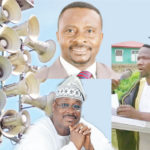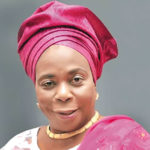We allowed a once vibrant, diverse economy to atrophy into something overly dependent on oil revenue and on the rent-seeking behavior such revenues encourage. Even at the best of times and with the highest of oil prices, the economy was characterized by imbalance and inefficiency. Widespread poverty, gross inequality and massive unemployment described our condition. We survived but did not flourish. But bothered not to change because we thought oil would always be able to pay for everything.
Because of this, we left millions upon millions of our people in the clutch of destitution. Poverty became their abundance and joblessness their vocation, despair their faith.
The secular decline in oil prices revealed our extant economic model for the travesty it is. Should we continue along its sad path, history will write of us that we chose self-destruction over progress for no reasons other than inertia and arrogance? Future generations will utter “there went the best chance of Nigeria.” This is not a verdict I want attached to my name and our generation. We must refuse to be bondsmen to failure. Here are some ideas that may aid this vital economic repair.
We are among the world’s most populous nations. We must realize that no populous nation has ever attained broadly- shared prosperity without first creating an industrial capacity that employs large numbers of people and manufactures a significant quantity of goods for domestic consumption or export.
In one form or another, England, America and China implemented policies to protect key industries, promote employment and encourage exports. These three nations represent the past, present and immediate future of national economic achievement. A strong common thread is their policies of buffering strategic industries in ways that allows for the expansion and growth of the overall economy.
We must press forward with a national industrial policy fostering development of strategic industries that create jobs as well as spur further economic growth. Whether we decide to focus attention on steel, textiles, cars, machinery components, or other items, we must focus on manufacturing things that Nigerians and the rest of the world value and want to buy.
We must partially reshape the market place to accomplish this. The federal government should institute a policy of tax credits, subsidies and insulate critical sectors from the negative impact of imports.
We need a national infrastructure plan. Roads, ports, bridges and railways need enhancing and new ones need to be built, the goal must be a coherently-planned and integrated infrastructural grid. A national economy cannot grow beyond the capacity of the infrastructure that serves it. Good infrastructure yields a prospering economy. Weak infrastructure relegates the economy to the poorhouse. Government must take the lead…
The proposals stated above are largely within the province of the federal government. Focusing on these and other such things will keep the federal government sufficiently busy. Sadly, the federal government is now doing things the states can perform with equal dexterity and which detract the federal government from the key missions only it can perform.
This imbalance between the roles of the federal and state governments lies at the root of our difficulties. To achieve better levels of overall governance, we need to re-balance the duties of the federal and state governments. The legacy of undemocratic rule has arrogated too much power and resources to the federal at the expense of state governments. The quest to correct the imbalance is the essence of federalism I have advocated for so many years.
Due to our particular political history and its military legacy, the quality of our federalism and the quality of our democracy are intertwined. The more we repair federalism, is the more we improve democracy.
In my mind, federalism denotes a division of labor between the federal and state governments that functions to maximize the benefits of governance to the people. True federalism is that brand which provides that the federal government should focus on those few but essential things only it can provide such as foreign policy, defense, and national economic policy. Additionally, in those matters where uniform standards and requirements are appropriate, the federal government must take the lead.
All other matters should be left to the states. If there is doubt over a particular issue, the presumption should be that the states, not the federal government, should take the lead. Here, I say to those so eager to dispense with federalism in favor of more rash and impractical remedies, let us first truly practice federalism before we deem it a failure. If given but a fair chance, we just might perfect federalism by making it work for the benefit of all of us. Constitutionally, we are a federation of 36 states.
However, the vestiges of past military rule continue to haunt the democratic road we hew. We function like a unitary state in many ways. We cannot become a better Nigeria with an undue concentration of power at the federal level. Competition for federal office will be too intense, akin to a winner-take-all duel. Those who lose, will bristle at the lack of power in the periphery they occupy. They will scheme to pester and undermine the strong executive because that is where they want to be.
The executive will become so engaged in deflecting their antics, that it will not devote its great powers to the issues of progressive governance for which such powers were bestowed. Things will be in a constant state of disequilibrium and irritation. Such a situation augurs toward the maintenance of an unsatisfactory status quo in the political economy. It augurs against reform.
It would be better to restructure things to attain the correct balance between our collective purpose on one hand and our separate grassroots realities on the other. Many of the 68 items on the Exclusive Federal List should be transferred to the Residual List. This would be in harmony with the 1963 Constitution, again an instance of reaching back to revive something old yet more likely to give us a better Nigeria. That prior constitution granted vast powers to the regions enabling them to carry out their immense responsibilities as they saw fit.
By virtue of the clear fact that regional governments were closer to the people, they had a better feel for the material and intangible priorities of their populations. We must return to this ideal.
Some items which should left for the states to handle such as police, prisons, stamp duties, regulation of tourist traffic, registration of business names, incorporation of companies, traffic on federal truck roads passing through states, trade, commerce and census are now on the Exclusive List for the federal government.
Regarding the all-important electrical power, while the federal government takes the lead, there is no logical reason to limit states to generate, transmit and distribute electricity only to areas not covered by the national grid.
The states should be allowed to augment power generation so long as they do not undermine federal operations. For instance, a state may wish to develop an industrial park or housing estate either of which will require a boost in power generation. However, if the national government does not agree, the state will be foreclosed from projects that provide jobs and better living conditions to its people. This is not in keeping with the spirit of federalism. It is consonant with an undemocratic tradition that keeps us from approaching a better Nigeria.
As an adjunct, we should also seek to re-calibrate the revenue sharing formula in order to bring more funds to the state and local levels so they can answer their enlarged responsibilities.
In this regard, the residual effect of the old unitary system has made hash of the Paris Club refunds owed the various state governments. Money that is owed the states, belongs to the states. We all support propriety of expenditure. The sentiment behind the withholding is understandable if not laudable. But the federal government has no right to withhold funds that constitutionally belong to the states. The fear of possible misuse of funds is no reason to violate the constitution. Provide the funds to the states as legally required. Committed and fine governors will use the funds wisely. And the people will be better off. As to those who squander the money, there are appropriate ways to expose and sanction them. This is where the federal government can appropriately step in. However, to withhold the funds, no matter how well intended, is to undermine federalism and the rule of law. It will have adverse long-time consequences; as such, it is too high a price to pay.
Conclusion
When we unite and not untie, we build on an existing maxim of ONE NIGERIA by describing that ONENESS as the fabric of a larger society S.E.W.N. (South East West North) together.
In closing, Kingsmen and distinguished guests, as we continue our collective journey to a better Nigeria, permit me to borrow and slightly modify, for tonight, the chorus of your timeless School Anthem
“Sound Nigeria’s praises, trumpet forth her fame,
Though of many nationalities we are all still the same,
Brothers with a common debt, Resolved to forgive and forget;
Let us pray that from what we have been given
We will render service to the living,
And honour to the dead”
The ideals for which Kings College is known speak neither to the old or new Nigeria. They speak to the integration of the best of both into a better, more progressive Nigeria.
We exist in an era where progressive reform and compassion in governance are not oft spoken. It is a dark period the world has entered, where the lesson is the powerful do as they will and the weak suffer as they must.
Ye, we resist this trend; it holds nothing good for Nigeria. We must adhere to the values and policies that suggest tomorrow can be made a better place than today.
I refuse to believe we have become such an untoward lot that the longer we live together, the more estranged we become.
Just as we have gathered here today, we must gather about the national table to repair our political discourse. In this way, we begin the process leading to policies that bring – civic kindness, generosity of spirit, sustainable growth, equality and peace to every Nigerian who seeks these good things. These are the pillars of a better Nigeria. By the grace and mercy of our common Creator, we shall build such pillars so that we and succeeding generations may come to build even greater things upon them.
- Being an address delivered by Asiwaju Tinubu as Principal Guest of Honour/Keynote Speaker at the 2017 Annual Dinner of the King’s College Old Boys’ Association (KCOBA) on Saturday, September 23rd, 2017 at King’s College, Lagos.
WATCH TOP VIDEOS FROM NIGERIAN TRIBUNE TV
- Let’s Talk About SELF-AWARENESS
- Is Your Confidence Mistaken for Pride? Let’s talk about it
- Is Etiquette About Perfection…Or Just Not Being Rude?
- Top Psychologist Reveal 3 Signs You’re Struggling With Imposter Syndrome
- Do You Pick Up Work-Related Calls at Midnight or Never? Let’s Talk About Boundaries







